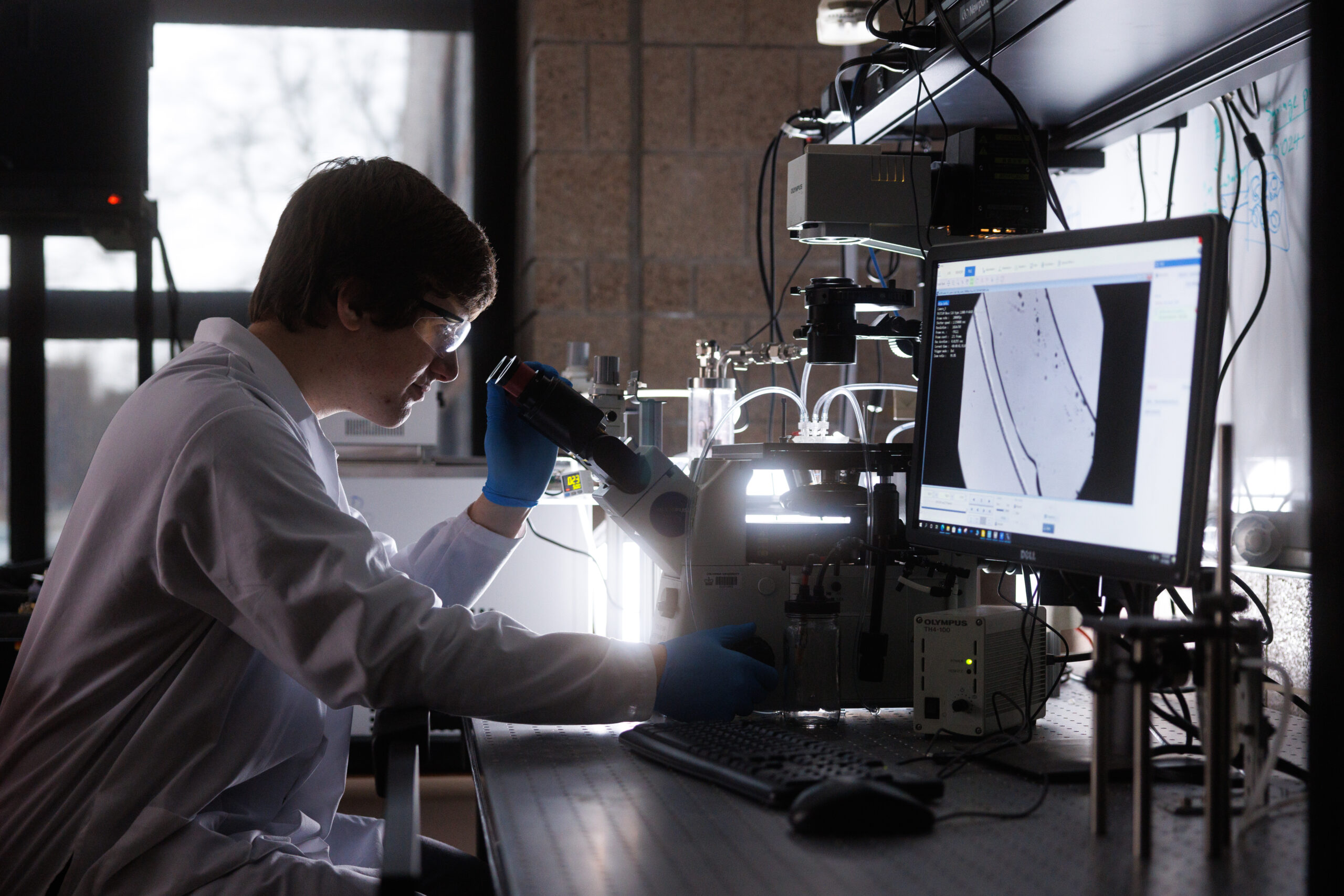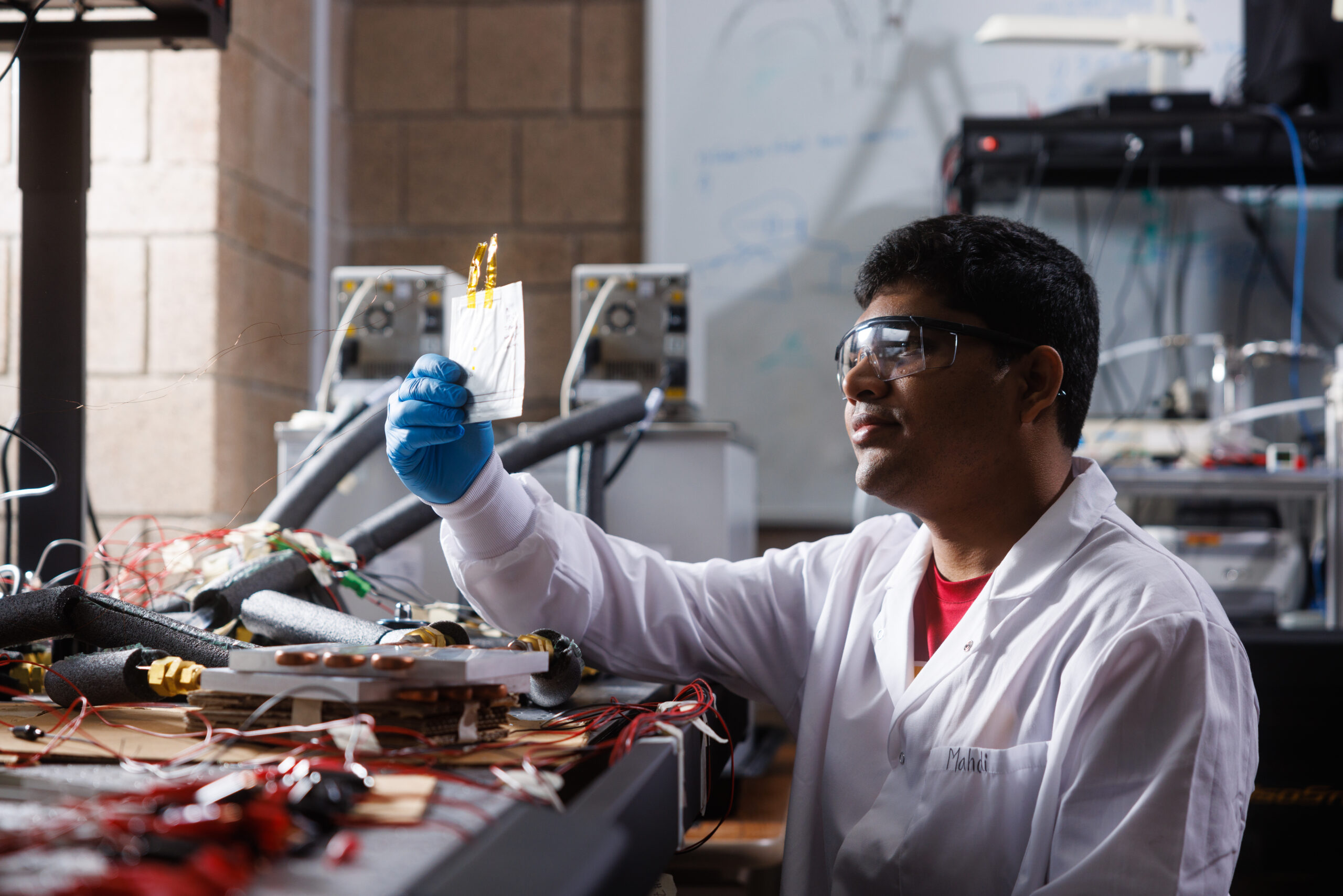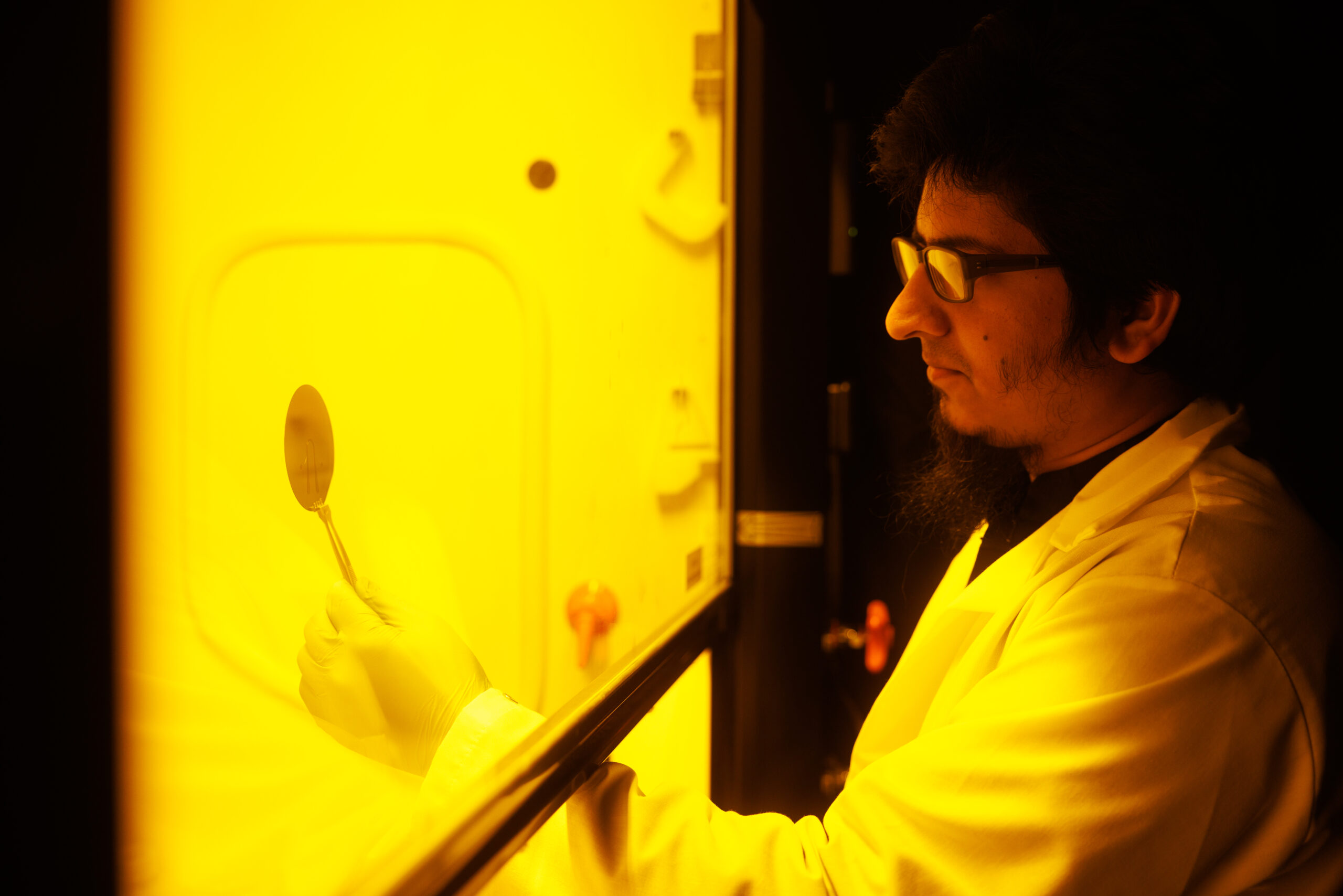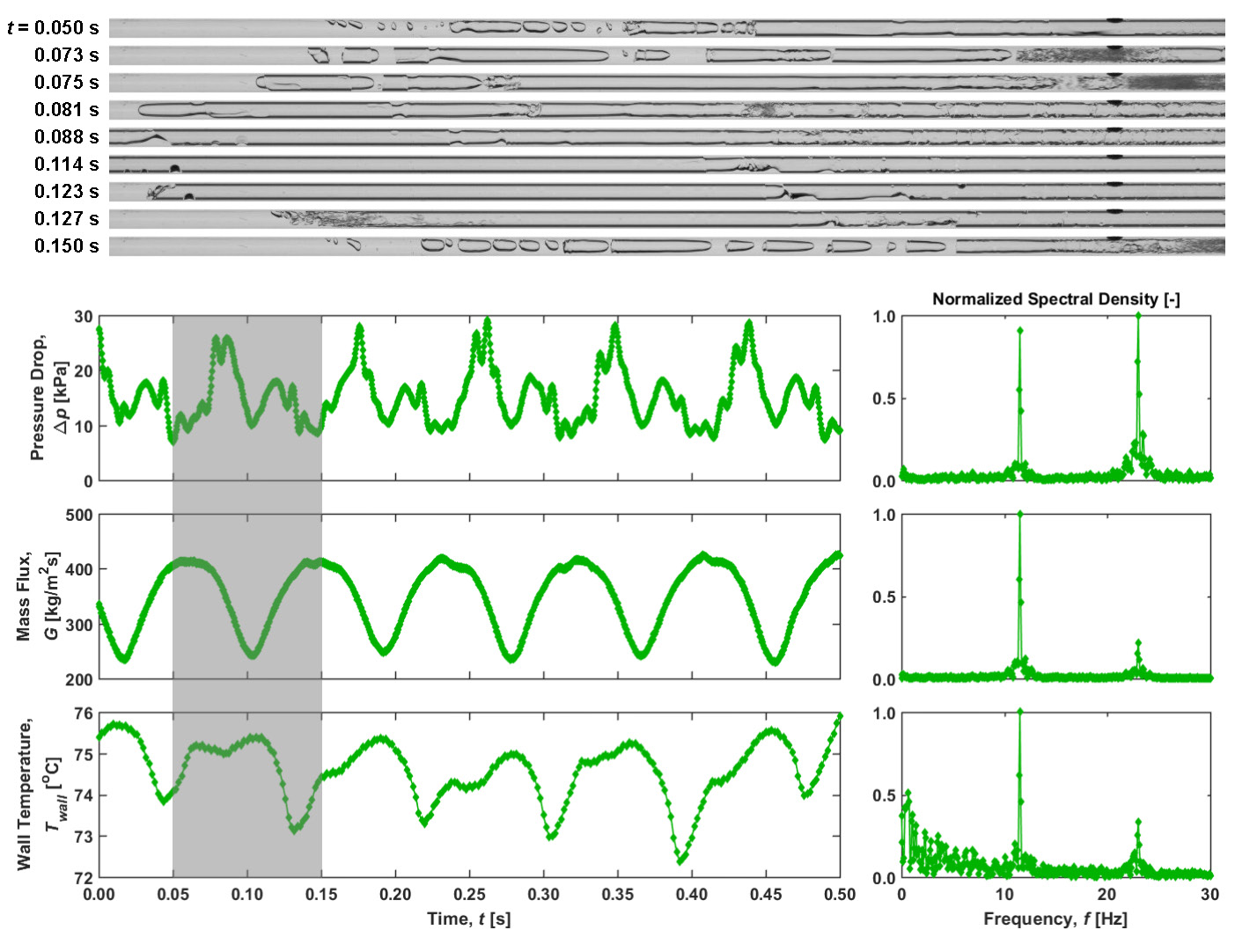


Multiphase Thermal-Fluid Transport
The continual rise in the global population and energy consumption combined with the demand for renewable, reliable, and inexpensive energy sources has resulted in the need for transformative solutions to energy transport and conversion. Multiphase thermal-fluid transport phenomena are often vital to these energy processes and are at the heart of numerous industries, including aerospace, chemical, electronics cooling, materials processing, renewable energy, and transportation. Our goal is to advance the fundamental understanding of multiphase thermal-fluid transport to enable state-of-the-art solutions to some of the grand challenges of the energy sector.
Thermo-Electrochemical Phenomena
Lithium-ion batteries are being developed to power a range of applications from portable consumer electronics (e.g., cell phones) to hybrid and electric vehicles because of their high energy and power density compared to other battery technologies. It is well known that the electrochemical performance of the Li-ion battery is dependent on thermal conditions, but the impact of thermal conditions is not fully understood. Our goal is to enable next-generation lithium batteries with intelligent thermal and battery management systems that actively promote advantageous electrochemical conditions in real-time to achieve increased performance and safety.


Microfluidics
Microfluidic devices offer unique capabilities compared to macroscale fluid systems, such as high throughput, low residence time, and high surface area-to-volume ratios, to name a few. Our research group exploits these unique characteristics by designing, fabricating (e.g., via photolithography), and testing microfluidic devices to study fundamental microscale transport phenomena in a range of applications.
Two-Phase Thermal Management
Thermal management continues to be the limiting factor in the advancement of high-power-density electronic devices, such as avionics, power inverters and amplifiers, high-performance microelectronics, and laser diodes. Microchannel flow boiling is an attractive approach for the thermal management of devices generating high heat fluxes. However, designing heat sinks for two-phase operation and predicting their performance remains difficult. Our work aims to advance the state of the art by improving our fundamental understanding of two-phase thermal and flow dynamics.
